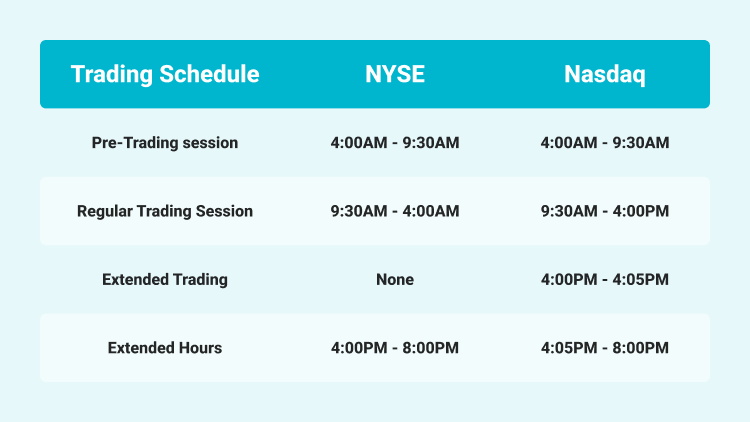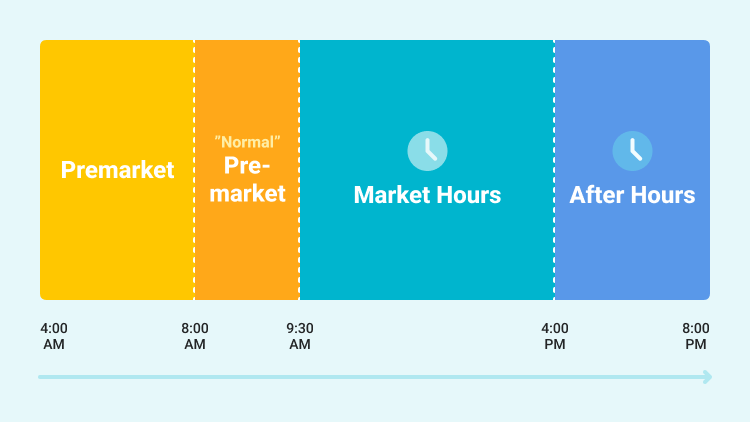Please use a PC Browser to access Register-Tadawul
The U.S. Stock Trading Sessions
The regular trading hours for the U.S. stock markets, including the New York Stock Exchange (NYSE) and the Nasdaq Stock Exchange (Nasdaq). Both stock exchanges open Monday through Friday from 9:30 AM to 4:00 PM Eastern Daylight Time (GMT-04:00), and they don’t close for lunch, opening for a total of 6 hours 30 minutes per day.

- Eastern Standard Time (EST): EST is observed during the autumn and winter months in New York and other cities in the U.S. It is five hours behind the Greenwich Mean Time(GMT)/Coordinated Universal Time or UTC-5.
- Eastern Daylight Time (EDT): In summer and spring seasons, daylight saving time is observed in the US. EDT is four hours behind UTC or UTC-4.
Pre-market trading & Extended-hours trading

1. Pre-market trading
Pre-market trading typically occurs between 8 a.m. and 9:30 a.m., when investors make trades before the opening bell for major US exchanges. For example, if an investor places a limit order in the pre-market to buy 100 shares of Apple at $100 per share, and there is no sell order for Apple on the electronic communication networks (ECN). In this case, the investor’s buy order will not immediately execute. If no one is willing to sell shares at the price he/she wants to buy them for, the investor may have to wait until there is a match for his/her price, which may not happen. (Note: ECNs are computerized trading systems, which display and match orders directly between buyers and sellers.)
As pre-market trading allows for an early jump on reactions to the news, investors can look for opportunities to get ahead of the market, especially if earning reports are being released on the trading day. But during the pre-market, there is less trading volume and less competition. Sometimes, there may be no buyers or sellers to fill an order. Fewer buyers and sellers also mean a wider variation in prices or higher volatility.
2. Extended-hours trading
After-hours trading starts at 4 p.m. and can run as late as 8 p.m. ET., which is something traders or investors can do if news breaks after closing. The changes in share prices during the after-hours are a valuable barometer of the market reaction to the new information released.
Extended trading hours can offer some benefits to investors, as they can use this time to quickly respond to business news or changes in the market. For example, if a company announces a surprisingly favorable earnings after hours, it could create a demand for shares and a subsequent bump in the company's stock price. However, if there are fewer market participants in after-hours sessions, there will be limited liquidity for most stocks, which would cause large spreads and increased volatility.



